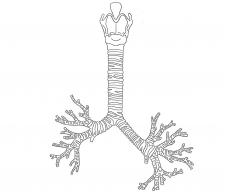Fatal experiments: a maverick surgeon strikes back
By Nell Frizzell,
The Guardian
| 10. 25. 2016
“If I had the choice between a transplant of a synthetic trachea and the firing squad I’d choose the last option because this is the least painful form of execution,” says Professor Pierre Delaere.
At times, the language in Fatal Experiments: the Downfall of a Supersurgeon is far from clinical. The documentary, which sparked controversy in Sweden earlier this year and which airs on the BBC this week, slices open the somewhat murky story of Paolo Macchiarini – a brilliant surgeon accused of falsifying scientific results and being investigated over potential charges akin to manslaughter, after attempts to implant plastic windpipes failed and patients died.
In the documentary, we watch archive footage of Macchiarini operate on a young Russian woman with a non-fatal condition; we see him pose for photos alongside apparently “saved” patients; we watch him take phone calls on the beach, holding his shoes; we hear from the families of patients who have died; we hear from the doctors who complained about his methods; we read the disputed extracts from his research papers and, finally, we watch...
Related Articles
By Courtney Withers and Daryna Zadvirna, ABC News | 12.03.2025
Same-sex couples, single people, transgender and intersex West Australians will be able to access assisted reproductive technology (ART) and surrogacy, almost a decade after reforms were first promised.
The landmark legislation, which removes the requirement for people to demonstrate medical...
By Rachel Hall, The Guardian | 11.20.2025
Couples are needlessly going through IVF because male infertility is under-researched, with the NHS too often failing to diagnose treatable causes, leading experts have said.
Poor understanding among GPs and a lack of specialists and NHS testing means male infertility...
By Lars Cornelissen, The Conversation | 11.28.2025
Prime Minister Keir Starmer thinks that racism is returning to British society. He has accused Nigel Farage’s Reform UK of sowing “toxic division” with its “racist rhetoric”.
Starmer’s comments follow a trend that has seen senior Labour party officials portray...
Several recent Biopolitical Times posts (1, 2, 3, 4) have called attention to the alarmingly rapid commercialization of “designer baby” technologies: polygenic embryo screening (especially its use to purportedly screen for traits like intelligence), in vitro gametogenesis (lab-made eggs and sperm), and heritable genome editing (also termed embryo editing or reproductive gene editing). Those three, together with artificial wombs, have been dubbed the “Gattaca stack” by Brian Armstrong, CEO of the cryptocurrency company...




